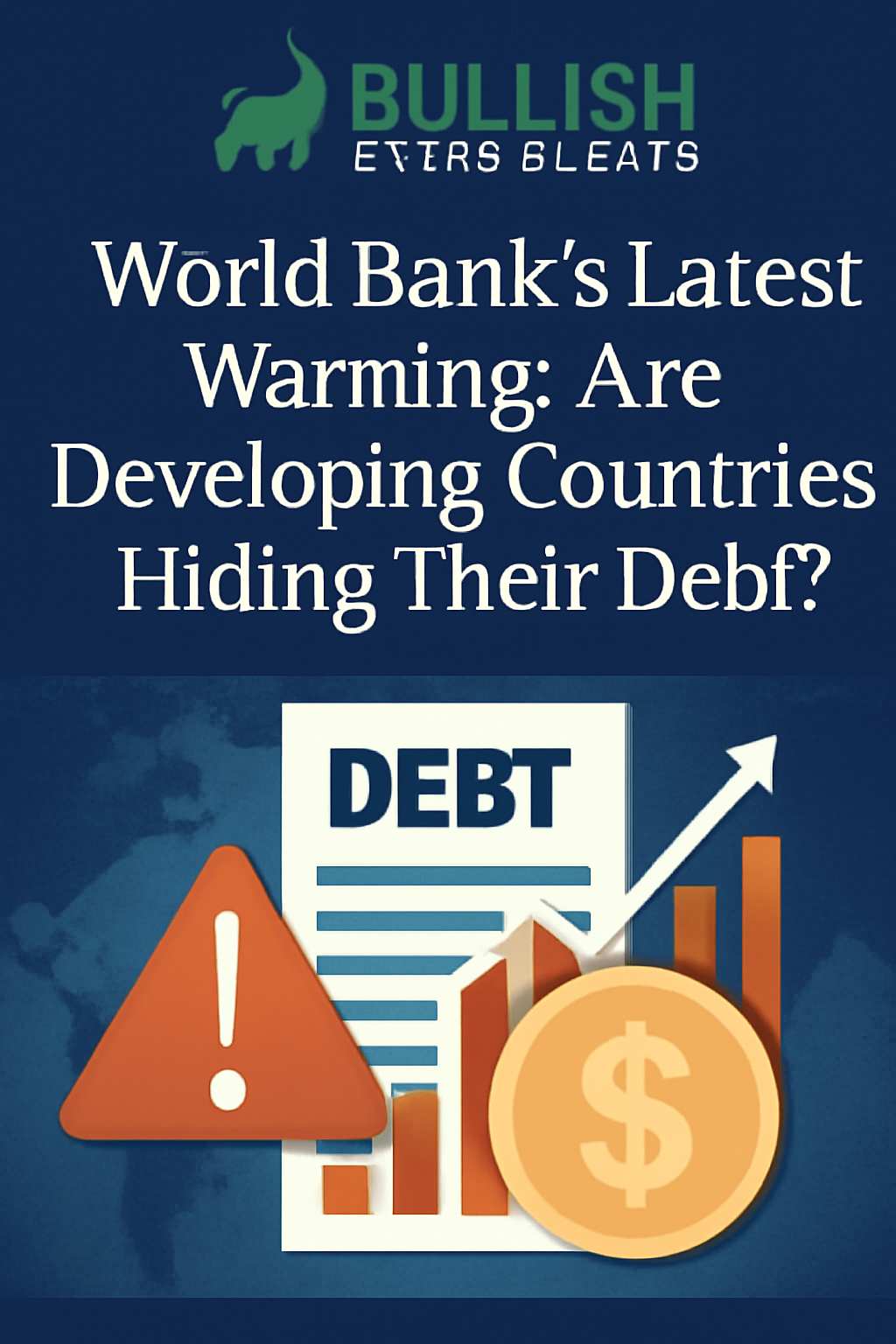The World Bank has raised a serious concern: developing countries are hiding their debt. This lack of transparency in debt reporting could pose significant risks to both national and global financial stability. But why is this happening, and what does it mean for the future?
What’s Happening with Debt Transparency?
The World Bank’s latest report shows that many developing nations have been obscuring their debt levels. This hidden debt is often not reported accurately, making it harder for investors and governments to assess the true financial risk. The lack of transparency is a growing problem. Countries are using complicated financial practices to keep this debt off the official books.
This is especially concerning because these countries rely heavily on debt to finance growth and public services. If the true scale of their debt isn’t revealed, it could lead to unsustainable financial practices and eventual defaults.
The Risks of Hidden Debt
When debt isn’t transparent, the consequences can be severe:
- Increased Risk of Default
Without clear reporting, countries can borrow more than they can afford. When they can’t pay it back, they default. This creates financial chaos and undermines confidence in their markets. - Weakened Investor Confidence
Transparency is key for investors. When debt is hidden, investors can’t assess risk accurately. This may lead to higher borrowing costs or even deter investment altogether. - Global Financial Instability
Hidden debt can cause broader problems. If multiple countries struggle with undisclosed debt, it can lead to contagion effects that spread across the global economy, impacting developed and emerging markets alike. - Social and Economic Impacts
When countries default, they often cut essential services, like healthcare and education. This can cause widespread economic hardship, leading to social unrest.
Why Does This Matter for the Global Economy?
Developing countries are critical players in the global economy. They participate in trade, investment, and supply chains that affect everyone. If these economies suffer, the rest of the world is at risk.
For instance, a sudden financial crisis in one developing country can spread quickly to other nations. This could weaken investor confidence, disrupt trade, and harm global growth. Transparency in debt reporting is essential for preventing such scenarios.
How Can Debt Transparency Improve?
There are ways to address this issue. The World Bank has outlined several measures to help developing countries become more transparent with their debt:
- Clear Debt Reporting
Countries need to disclose all forms of debt. This includes government loans, private borrowings, and debts hidden through state-owned enterprises. Accurate and complete reporting will help everyone better assess the risks involved. - Third-Party Audits
Independent audits of national debt can help uncover hidden liabilities. These audits would provide a clearer picture of a country’s financial situation and prevent governments from hiding important information. - Stronger Governance
Developing countries need to build stronger debt management systems. Effective governance is essential for tracking debt and ensuring accountability. International organizations can assist in implementing these frameworks. - Global Cooperation
Debt transparency is a shared responsibility. The World Bank suggests that developed nations and international financial institutions work together to improve financial governance in developing countries.
What Does This Mean for Investors?
For investors, this warning is a wake-up call. The risk of hidden debt in developing countries could affect investment strategies. It’s important to understand the full scope of a nation’s financial situation before investing. This means looking beyond public debt figures and considering potential hidden liabilities.
Investors should demand greater transparency and work with countries that provide clear and reliable financial reporting. By doing so, they can avoid hidden risks that could undermine the value of their investments.
Conclusion: Moving Forward
The World Bank’s latest warning sheds light on a serious issue that could have wide-reaching consequences. Developing countries must improve debt transparency to protect their economies and the global financial system. By adopting clear reporting practices, implementing audits, and strengthening governance, these nations can avoid the risks of hidden debt.
For investors, staying informed and vigilant about debt transparency will be key to navigating the evolving landscape. Hidden debt may be a problem, but with the right steps, it can be managed and reduced, ensuring a healthier global economy for all.
Did you find this article insightful? Subscribe to the Bullish Stock Alerts newsletter so you never miss an update and gain access to exclusive stock market insights: https://bullishstockalerts.com/#newsletter
Avez-vous trouvé cet article utile ? Abonnez-vous à la newsletter de Bullish Stock Alerts pour recevoir toutes nos analyses exclusives sur les marchés boursiers : https://bullishstockalerts.com/#newsletter









0 Comments